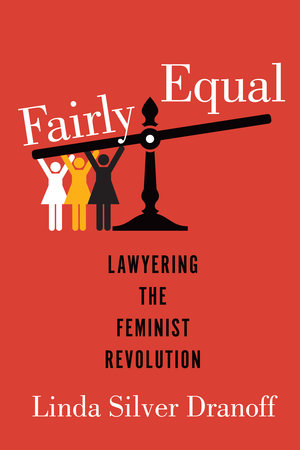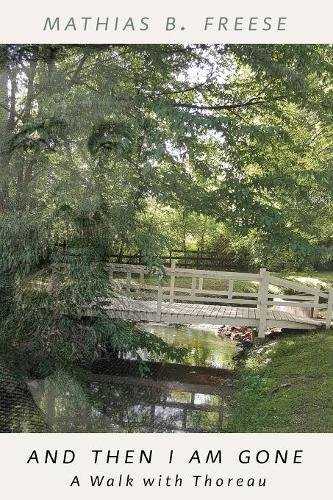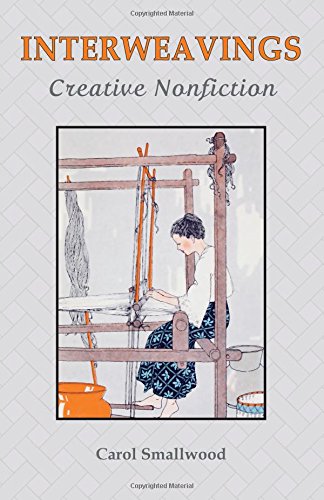 The lives of forgotten, marginalized persons – among them, people of other ethnicities to our own, and women – are in desperate need of recuperation. Many of those lives are fascinating, enlightening and inspiring, but if we seek deliberately to make them inspiring from our own positions of power and privilege, then we do them a grave disservice and perpetuate the historical imbalances that marginalized them in the first place.
The lives of forgotten, marginalized persons – among them, people of other ethnicities to our own, and women – are in desperate need of recuperation. Many of those lives are fascinating, enlightening and inspiring, but if we seek deliberately to make them inspiring from our own positions of power and privilege, then we do them a grave disservice and perpetuate the historical imbalances that marginalized them in the first place.
Tag: nonfiction
A review of Minimalism by Joshua Fields Millburn and Ryan Nicodemus
 Millburn and Nicodemus used their own discontent as a springboard to identifying the things that were ‘anchoring’ them or holding them back from finding meaning in their lives. This included the big mortgage payments that came with the expensive houses, unhealthy relationships, car payments, debts, continual spending and the high pressure careers with long hours that were required to keep the cycle going.
Millburn and Nicodemus used their own discontent as a springboard to identifying the things that were ‘anchoring’ them or holding them back from finding meaning in their lives. This included the big mortgage payments that came with the expensive houses, unhealthy relationships, car payments, debts, continual spending and the high pressure careers with long hours that were required to keep the cycle going.
A review of Scorn by Matthew Parris
 Not only does this book deliver 432 pages of compressed and valuable entertainment, it releases a multitude of ready responses that if rehearsed well, will provide a source of heavy artillery for any form of social intercourse within societies’ boundaries. This is also a vernacular most Australians accept as dinkum.
Not only does this book deliver 432 pages of compressed and valuable entertainment, it releases a multitude of ready responses that if rehearsed well, will provide a source of heavy artillery for any form of social intercourse within societies’ boundaries. This is also a vernacular most Australians accept as dinkum.
A review of Fairly Equal: Lawyering the Feminist Revolution by Linda Silver Dranoff
 As part of the “second wave” women’s movement, Ms Silver Dranoff has helped elevate Canadian women from second class citizenship to a position that is “fairly equal” to men – although there is still more to be done.
As part of the “second wave” women’s movement, Ms Silver Dranoff has helped elevate Canadian women from second class citizenship to a position that is “fairly equal” to men – although there is still more to be done.
A review of And Then I Am Gone by Mathias B Freese
 Not only do Freese and I concur on how a psychotherapist best engages with a client, but our approach to writing books also bisects. I too write to try to understand myself, indeed without outlines or a rigid plot structure. I daresay he would nod eagerly in understanding that your characters, given the chance, tell the story for you if you’ll listen to them, and in a more honest, exciting way.
Not only do Freese and I concur on how a psychotherapist best engages with a client, but our approach to writing books also bisects. I too write to try to understand myself, indeed without outlines or a rigid plot structure. I daresay he would nod eagerly in understanding that your characters, given the chance, tell the story for you if you’ll listen to them, and in a more honest, exciting way.
A review of Interweavings by Carol Smallwood
 Interweavings rings a perspective that prompts readers to go beyond an interpretation of Smallwood’s stories as descriptive pieces, to a body of work that provides a faceted look at the small moments of life that communicates deeper meanings and speaks to experiences Smallwood narrates from her reflections across her lifetime.
Interweavings rings a perspective that prompts readers to go beyond an interpretation of Smallwood’s stories as descriptive pieces, to a body of work that provides a faceted look at the small moments of life that communicates deeper meanings and speaks to experiences Smallwood narrates from her reflections across her lifetime.
Environmental Justice: Nature and Nation, Wealth and Waste in Carl A. Zimring’s scholarship (Clean and White)
 Some questions remain. How will different perspectives be reconciled? How will a nation’s citizens conserve what is good, while achieving progress beyond what is bad? How will people get what they need from the earth, while still protecting the land—and respecting all its people? True prophecy is rare—and arrogance can lead to destruction.
Some questions remain. How will different perspectives be reconciled? How will a nation’s citizens conserve what is good, while achieving progress beyond what is bad? How will people get what they need from the earth, while still protecting the land—and respecting all its people? True prophecy is rare—and arrogance can lead to destruction.
A review of Kylie’s Ark by Rita Welty Bourke
 It’s invariably true that Herriot’s animal stories ended happily, as she notes. Her stories, well, invariably do not. They resist a chipper ending and, indeed, conspire to break her heart. Being a veterinary student certainly is no picnic for her, but when she’s finally graduated and chosen to set up her practice, the life still is no picnic. Not that Wheeler wishes it was! Her last words confess that she’ll look for another line of work if she ever stops struggling to save suffering animals in her care.
It’s invariably true that Herriot’s animal stories ended happily, as she notes. Her stories, well, invariably do not. They resist a chipper ending and, indeed, conspire to break her heart. Being a veterinary student certainly is no picnic for her, but when she’s finally graduated and chosen to set up her practice, the life still is no picnic. Not that Wheeler wishes it was! Her last words confess that she’ll look for another line of work if she ever stops struggling to save suffering animals in her care.
A review of The Memoirs of Billy Shears by Thomas E Harriet
 Suggestions that the original Paul was getting a little too big for his britches, that his interests were veering into subversive areas and that he was considering using his notoriety and influence to confront some of the bedrock pretenses of the world he lived in, abound on internet forums devoted to this topic. Perhaps one day even this stunning tome will be superseded by yet another more revelatory dissertation that tells the whole truth. It could well be that a still more unimaginable, mind-blowing story is waiting in the wings.
Suggestions that the original Paul was getting a little too big for his britches, that his interests were veering into subversive areas and that he was considering using his notoriety and influence to confront some of the bedrock pretenses of the world he lived in, abound on internet forums devoted to this topic. Perhaps one day even this stunning tome will be superseded by yet another more revelatory dissertation that tells the whole truth. It could well be that a still more unimaginable, mind-blowing story is waiting in the wings.
A review of Imperial Plots by Sarah Carter
 Government and Canadian Pacific Railway officials (all men), subscribed to the myths that women lacked the technological and physical ability to farm successfully. In practice, wives and daughters of homesteaders frequently performed hard physical toil and operated machinery. Carter’s study uncovered many women who farmed and ranched, some quite successfully.
Government and Canadian Pacific Railway officials (all men), subscribed to the myths that women lacked the technological and physical ability to farm successfully. In practice, wives and daughters of homesteaders frequently performed hard physical toil and operated machinery. Carter’s study uncovered many women who farmed and ranched, some quite successfully.